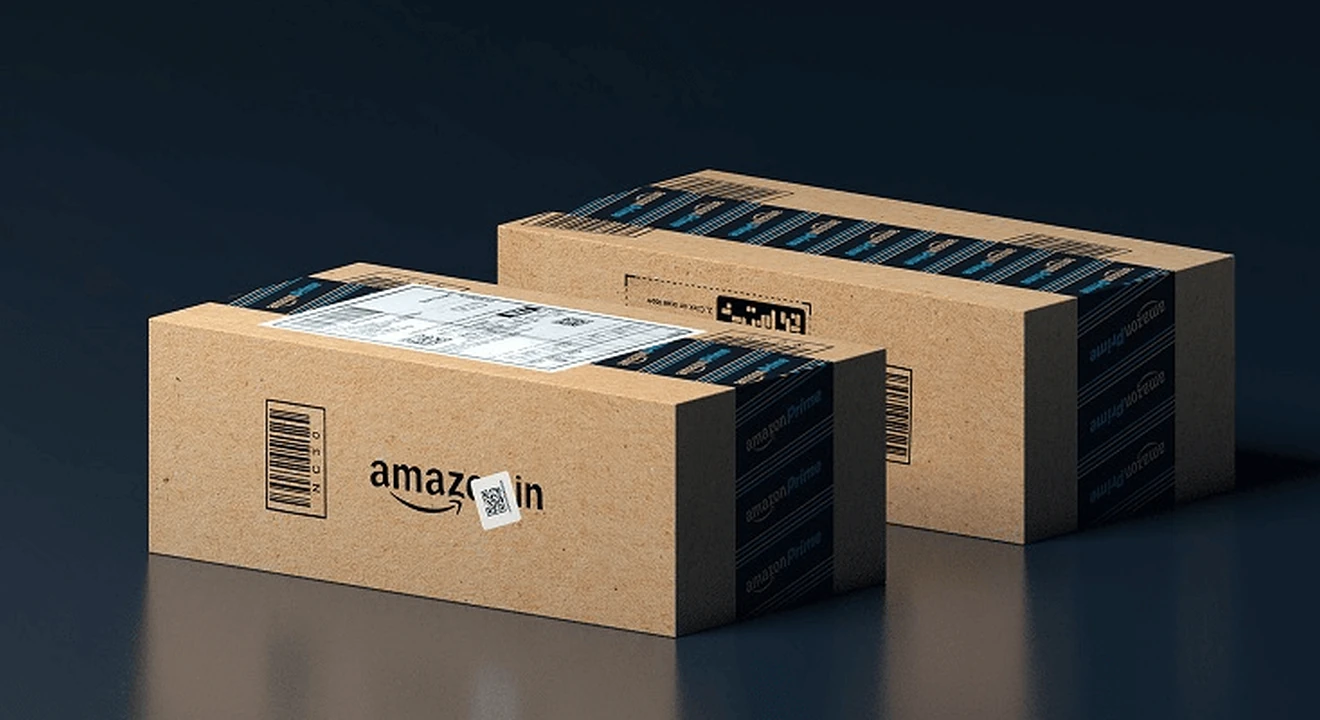In this article, we’re going to give you four actionable steps toward crafting the perfect answer to the question, “why do you want to work for Amazon?”.
“Why Amazon?” is one of the most common behavioral interview questions asked in Amazon interviews across roles, so it is very important to prepare an answer that will set you apart.
Our first tip: do your research!
Let’s jump right into it.
- Learn why interviewers ask this question
- Study up on Amazon
- Write out your answer
- Practice your answer out loud
Click here to practice 1-on-1 with ex-Amazon interviewers
1. Learn why interviewers ask this question
Amazon is a fast-paced company that has very high expectations of its employees. At Amazon, you’ll be addressing complex problems, working with the best of the best, and optimizing technology that serves billions of people.
Interviewers ask “why Amazon?” to test whether you’ve got the motivation to last in this kind of environment. If your Amazon interviewer senses that you are not motivated enough, or if you’re motivated for the wrong reasons (i.e. just a paycheck), then they will be unlikely to push your application further.
Interviewers also want to get an idea of how well you’ve researched and prepared for the interview. As Amazon is a highly data-based company, they’re looking for employees who know how to put the work in and make major decisions based on analysis.
Coming to the interview with well-researched and specific reasons as to why you want to work for Amazon shows them that you’re the profile they’re looking for.
1.1 Tips for a great answer
Here are the components of a great answer:
Tips to prepare your answer for “why Amazon?”
- Network: Make an effort to meet with or call one or more current Amazon employees, ideally from the team you’re applying to. Ask them what it’s like working there, why they chose Amazon, and what is unique about it. This will give you good, specific talking points for your answer, and mentioning their names shows the interviewer that you’ve put in effort to get to know the company.
- Make it personal: If you have any examples from your personal experience that tie in with Amazon, now is a good time to bring them up: an Amazon product that shaped how you see the world, an Amazon initiative that has made a difference in your life, etc.
- Make it specific: Your answer for “why Amazon?” should not apply to any other company. Try swapping out “Amazon” with other big tech names like Google and Meta. If the answer also works for the other companies, that’s a sign that you need to keep working.
- Give more than one reason: Aim for two to three concise reasons as to why you want to work for Amazon, as well as in your team and position specifically. Adding any more reasons risks making your answer too long, and only having one reason likely won’t be a strong enough answer.
- Talk about your team: Amazon is an enormous company, which means that some of the reasons why you might want to work for Amazon as a whole may not be specific enough. So talk about the team and role that you’re applying for, and why that is a perfect fit for you as well.
- Keep it balanced: While you want to answer this question enthusiastically, overly praising Amazon or yourself will come off as disingenuous. Give real reasons as to why you want to work there, without offering empty compliments.
1.2 Common pitfalls
Finally, before moving on to the next step, take some time to review common mistakes that candidates make when answering this question.
Common pitfalls in answering “why Amazon?”
- Answer is too broad: Simple answers such as “it would be a great opportunity to learn more,” “the people here are very smart and work hard,” or “the culture here is awesome” won’t make the cut on their own (even if they’re true!). Interviewers have heard these responses many times before, so you’ll need to make it more personal and targeted.
- Answer is too long: This question is frequently asked at the beginning of a longer interview round or during the initial screening process. In both cases, it’s important to answer quickly and concisely, so that the interviewer can understand your answer and have time for other questions. Aim for a roughly 1-minute response.
- Answer lacks structure: Think of two or three reasons you’d like to work there, and describe each of them, one at a time. Otherwise, the interviewer will have difficulty following your train of thought, and you are more likely to ramble.
2. Study up on Amazon
Now that you’ve got an understanding of why interviewers ask this question, as well as a few tips on how to answer it well, let’s get started on crafting your answer.
The first thing you should do is learn about Amazon. As we mentioned in our tips, now is a good time to reach out to people from Amazon to get an idea of what the company is like.
In addition to the networking, do some research about Amazon’s culture and values. Here are a few general resources to get you started:
- Amazon's mission statement (by Amazon)
- Amazon's leadership principles (by Amazon)
- Amazon strategy teardown (by CBS Insights)
You’ll also want to tailor your answer to the position that you’re applying to. If you’d like more information about top tech roles at Amazon, including practice questions and preparation tips, take a look at one of our interview guides:
- Amazon product manager
- Amazon program manager
- Amazon technical program manager
- Amazon software development engineer
- Amazon software development manager
- Amazon data scientist
- Amazon applied scientist
- Amazon (technical) account manager
- Amazon machine learning engineer
- Amazon data engineer
Once you’ve got an idea of the company as a whole, you’ll need one or two more specific details about Amazon that you can use to customize your answer.
2.2 Amazon’s leadership principles
One key part of landing your dream job at Amazon is showing your alignment with the company’s 16 leadership principles. Interviewers like the Bar Raiser are frequently assigned one or multiple leadership principles to focus on per round, meaning that you’ll encounter them at every stage.
So, when answering the question “why Amazon?”, it’s a good idea to get a head start on the leadership principles by bringing up one or two that inspire you.
We’ll get more into how to use these to craft your specific answer in the next section, but for now, go through the list below and pick one that resonates the most with you. Think of examples from your own past and your experience with Amazon that highlight this principle.
If you're not already familiar with Amazon's leadership principles, here is the full list:
Amazon's 16 leadership principles
- Customer Obsession - "Leaders start with the customer and work backwards. They work vigorously to earn and keep customer trust. Although leaders pay attention to competitors, they obsess over customers.”
- Ownership - "Leaders are owners. They think long term and don’t sacrifice long-term value for short-term results. They act on behalf of the entire company, beyond just their own team. They never say ‘that’s not my job.’”
- Invent and Simplify - "Leaders expect and require innovation and invention from their teams and always find ways to simplify. They are externally aware, look for new ideas from everywhere, and are not limited by ‘not invented here.’ Because we do new things, we accept that we may be misunderstood for long periods of time.”
- Are Right, A Lot - "Leaders are right a lot. They have strong judgement and good instincts. They seek diverse perspectives and work to disconfirm their beliefs.”
- Learn and Be Curious - "Leaders are never done learning and always seek to improve themselves. They are curious about new possibilities and act to explore them.”
- Hire and Develop the Best - "Leaders raise the performance bar with every hire and promotion. They recognize exceptional talent, and willingly move them throughout the organization. Leaders develop leaders and take seriously their role in coaching others. We work on behalf of our people to invent mechanisms for development like Career Choice.”
- Insist on the Highest Standards - "Leaders have relentlessly high standards — many people may think these standards are unreasonably high. Leaders are continually raising the bar and drive their teams to deliver high quality products, services, and processes. Leaders ensure that defects do not get sent down the line and that problems are fixed so they stay fixed.”
- Think Big - "Thinking small is a self-fulfilling prophecy. Leaders create and communicate a bold direction that inspires results. They think differently and look around corners for ways to serve customers.”
- Bias for Action - "Speed matters in business. Many decisions and actions are reversible and do not need extensive study. We value calculated risk taking.”
- Frugality - "Accomplish more with less. Constraints breed resourcefulness, self-sufficiency, and invention. There are no extra points for growing headcount, budget size, or fixed expense.”
- Earn Trust - “Leaders listen attentively, speak candidly, and treat others respectfully. They are vocally self-critical, even when doing so is awkward or embarrassing. Leaders do not believe their or their team’s body odor smells of perfume. They benchmark themselves and their teams against the best.”
- Dive Deep - "Leaders operate at all levels, stay connected to the details, audit frequently, and are skeptical when metrics and anecdote differ. No task is beneath them.”
- Have Backbone; Disagree and Commit - "Leaders are obligated to respectfully challenge decisions when they disagree, even when doing so is uncomfortable or exhausting. Leaders have conviction and are tenacious. They do not compromise for the sake of social cohesion. Once a decision is determined, they commit wholly.”
- Deliver Results - "Leaders focus on the key inputs for their business and deliver them with the right quality and in a timely fashion. Despite setbacks, they rise to the occasion and never settle.”
- Strive to be Earth’s Best Employer - “Leaders work every day to create a safer, more productive, higher performing, more diverse, and more just work environment. They lead with empathy, have fun at work, and make it easy for others to have fun. Leaders ask themselves: Are my fellow employees growing? Are they empowered? Are they ready for what's next? Leaders have a vision for and commitment to their employees' personal success, whether that be at Amazon or elsewhere.”
- Success and Scale Bring Broad Responsibility - “We started in a garage, but we're not there anymore. We are big, we impact the world, and we are far from perfect. We must be humble and thoughtful about even the secondary effects of our actions. Our local communities, planet, and future generations need us to be better every day. We must begin each day with a determination to make better, do better, and be better for our customers, our employees, our partners, and the world at large. And we must end every day knowing we can do even more tomorrow. Leaders create more than they consume and always leave things better than how they found them.”
2.3 What sets Amazon apart
The biggest detail that sets Amazon apart from other tech companies, especially in the interview process, is their emphasis on the leadership principles we went over above.
However, there are other unique facts about Amazon that you can use to make your answer as specific to Amazon and as personal to you as possible.
Here are a few of them:
What sets Amazon apart
- Amazon is known for its fast-paced work environment. Managers have the reputation of applying quite a bit of structured pressure, giving employees difficult problems to solve and expecting them to get things done quickly and thoroughly. While this environment is intimidating for many, it can also push employees to work at their best and accomplish many projects. If you thrive in this kind of environment, you should mention it, backed up by an example from your work history.
- The company is also known for following a very structured process when it comes to hiring, which also applies to promotions, firing, and incentives. They aim to make major decisions using data-based processes, so that managers have a common understanding of where the bar is and how to raise it. If you’re a fan of working in this type of codified culture and have an example of how this has helped you thrive in the past, tell the interviewer about it.
- There is an LGBTQ+ employee affinity group at Amazon called Glamazon, which was voted among the top 10 LGBT Networks by Global Diversity List in 2021. If this is a meaningful cause to you, as a member of the community or as an ally, this could be a good thing to bring up, as an extra detail as to why you feel excited about working for the company.
- Amazon runs a number of powerful social initiatives, including the International Women's Day festival, committing to the Armed Forces Covenant, Black History Month celebrations, the Amazon Goes Gold campaign against childhood cancer, and many more. If one of these causes is near and dear to your heart, this could be a compelling reason as to why you want to work for Amazon
Need help in your tech career?
Our career coaches can show you how to get to where you want to be, whether that's at Amazon or elsewhere. Book a product management career coaching session or a software engineering career coaching session and get clarity on your next steps.
3. Write out your answer
By this point, you should have put together a list of three distinct reasons for why you would like to work for Amazon. It can include some of the facts we listed above, reasons from your personal experience, people you’ve networked with, or other facts you’ve found in your own research.
Now that you have the list, write out exactly how you plan on answering the question, “why Amazon?”
Once you’ve written your answer out, don’t forget to edit it as well. Make sure that you are stating the most relevant information, without too many extra details. The answer should take no longer than one minute to say out loud.
To give you some inspiration, we’ve included an example below. Note that it is specific to Amazon, takes no more than one minute to recite, and highlights the candidate’s skills without bragging.
Sample answer: Why do you want to work at Amazon?
I want to work at Amazon for three reasons.
First, I admire Amazon’s customer obsession leadership principle. This is something I've experienced first-hand when dealing with Amazon’s customer support, and it's also a principle I've been pushing at my current company. I was able to spearhead an initiative to update our support ticket system based on customer feedback, which decreased complaints by 20%.
Second, one of my co-workers, Robert Hidayat, used to be a Senior Product Manager at Amazon in Seattle. He has really great things to say about the company and often talks about how much he learned about product management there. I would love to be immersed in that environment.
Third, I've spent the last five years of my career in the streaming space, producing videos on my own as a hobby and working for a content production startup. I greatly admire the Amazon Video product and how it is positioned in the market, and I’d be excited to bring my experience to the Amazon Video team.
4. Practice your answer out loud
This is the last step to prepare your answer to “why Amazon?”. You should now have an answer written out and edited down to the most pertinent information.
It’s time to practice speaking through your answer, so that you’re able to recite it naturally, without missing any key details.
Here are two steps to prepare for this:
4.1 Practice on your own
First, recite your answer out loud and time yourself, if you haven’t already done so. Make sure to edit your answer down if it is longer than one minute.
Keep practicing until you can speak through your answer without referring to your written notes. You should be able to hit each of your main points smoothly, without sounding too rehearsed.
Finally, once you’ve memorized your answer, record yourself reciting it. Watch it back, and make note of your body language and places where you may be stumbling through important details.
Repeat this process until you’re able to answer the question enthusiastically, with engaging body language and a smooth response.
4.2 Practice with peers
Try out your answer in an interview setting by doing mock interviews. If you have friends or peers who can do mock interviews with you, that's an option worth trying. It’s free, but be warned, you may come up against the following problems:
- It’s hard to know if the feedback you get is accurate
- They’re unlikely to have insider knowledge of interviews at your target company
- On peer platforms, people often waste your time by not showing up
For those reasons, many candidates skip peer mock interviews and go straight to mock interviews with an expert.
4.3 Practice with experienced interviewers
In our experience, practicing real interviews with experts who can give you company-specific feedback makes a huge difference.
Find an Amazon interview coach so you can:
- Test yourself under real interview conditions
- Get accurate feedback from a real expert
- Build your confidence
- Get company-specific insights
- Learn how to tell the right stories, better.
- Save time by focusing your preparation
Landing a job at a big tech company often results in a $50,000 per year or more increase in total compensation. In our experience, three or four coaching sessions worth ~$500 make a significant difference in your ability to land the job. That’s an ROI of 100x!















